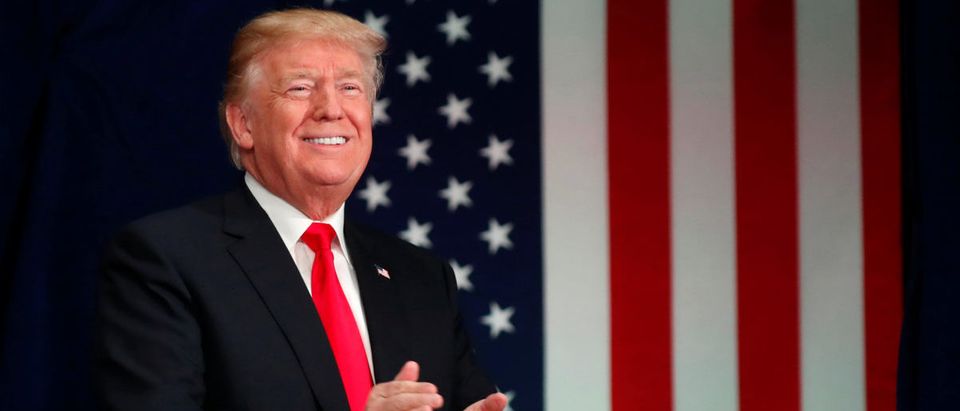After a political roller coaster of a year for the West and months of lobbying and political bickering that was characterized by many missed opportunities to find a real fix, President Trump pulled the US out of Iran nuclear deal, officially known as the JCPOA.
Considering that the parties involved were provided enough time to fix the JCPOA, the world should blame both the EU and the Iranian regime for the lack of sincere attempts to fix its flaws. If the EU had attempted to fix the deal with the same resolve that it lobbied President Trump to stay in the JCPOA, we would surely have been in a different situation.
For the theocracy in Tehran, the JCPOA was the best opportunity to legitimize its malign activities in the Middle East and prolong its grip on power inside the country. It is therefore not surprising that the regime lobbied hard to salvage the nuclear deal.
In his speech on 8 May announcing US withdrawal, President Trump laid out several points of a firm policy towards Iranian regime. “The deal lifted crippling economic sanctions on Iran in exchange for very weak limits on the regime’s nuclear activity — and no limits at all on its other malign behavior, including its sinister activities in Syria, Yemen, and other places all around the world.”
“As we exit the Iran deal, we will be working with our allies to find a real, comprehensive, and lasting solution”, President Trump added. This was emphasized hours later by the French President Macron.
Now, the US policy has shifted to cut the regime’s tentacles in the Middle East in order to protect the US, its allies and their interests in the region.
Israel and Saudi Arabia welcome the US withdrawal while the EU leaders regretted the decision.
In Iran, people witness two reactions and demands. Less than an hour after President Trump’s speech, President Rouhani appeared on state TV and announced that “Tehran will stay in the deal” contrary to his past blustering to pull out if the US does so. In fact, the regime naively expects the EU companies to disregard the US market and instead capitalize on Iran’s bankrupt economy.
Rouhani tried desperately to make a case for regime’s stability by claiming that, “the country carry on its economic growth”. But he contradicted his own words in the next sentences by adding, ”our people should not be worried about their basic needs”.
Indeed, Rouhani’s remarks prove that the regime is struggling to provide the Iranian people with their most basic needs.
Currently, the regime is not only riddled with corruption but is also moribund as it is incapable to find a real solution to address the economic crisis aggravated by the black economy and the black market as well as a currency is in a free fall. Now, keep in mind that this is the situation facing the Iranian regime before reinstating nuclear-related sanctions.
Some experts argue that Iran is now able to restart its uranium enrichment program. But the reality on the ground is that the regime has no real option but to accept Trump’s expectations and come back to the negotiating table. In this regard, one should remember that the Supreme Leader Ali Khamenei gave up when economic sanction brought his regime to its knees in 2012, precisely what is now happening in North Korea.
But what the US should not overlook in its new Iran policy is the regime’s systematic human rights violations.
Sadly, this important issue has been recognized as last priority for negotiators with a regime, which has the highest number of executions per capita in the world.
President Trump highlighted this crucial fact as he mentioned the ”long-suffering” of the people of Iran. As the nuclear deal did not improve the Iranian people’s living standard but instead provided the regime with billions of dollars to intensify its repressive security organs, the people of Iran welcome the increased pressure on their oppressors, namely the regime.
In this regard, the leader of Iran’s democratic opposition coalition, NCRI, Maryam Rajavi said, ”I reiterate that deterring the nuclear and terrorist threats posed by the regime is possible only by getting rid of the entire regime.”
Unfortunately, the EU is not determined to adopt a firm policy on Iran that includes human rights abuses by the regime and its senior leaders.
To support the oppressed people in Iran, the US should immediately impose sanctions on the regime’s state television. But perhaps more importantly, the US should refer the regime’s egregious human rights dossier to an international tribunal, which Mrs Rajavi has consistently called for on behalf of the Iranian opposition and the people of Iran who are the first victim of the ruling theocracy.
Hamid Bahrami is a former political prisoner in Iran who now lives in Glasgow, Scotland. He is a human rights and political activist and works as a freelance journalist.
The views and opinions expressed in this commentary are those of the author and do not reflect the official position of The Daily Caller.


